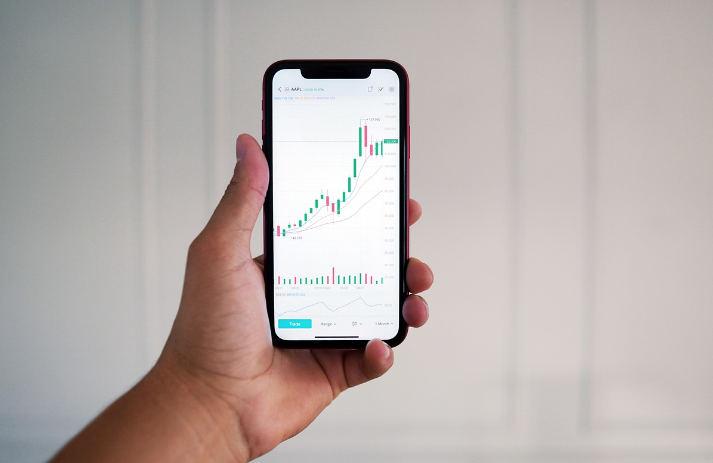In recent years, the financial markets in Kenya have seen significant growth, with more investors exploring diverse avenues for maximizing their returns. One such avenue that has gained considerable attention is Exchange-Traded Funds (ETFs).
The popularity of ETFs in Kenya is on the rise due to their potential to enhance trading portfolios through diversification, cost efficiency, and flexibility. This article delves into the role of ETFs in Kenya, highlighting their benefits and how they can be leveraged by advanced forex traders to optimize their investment strategies.
Understanding ETFs
Exchange-traded funds (ETFs) are investment funds that are traded on stock exchanges, similar to stocks. ETFs hold assets such as stocks, commodities, or bonds and generally operate with an arbitrage mechanism designed to keep trading close to its net asset value, though deviations can occasionally occur.
The appeal of ETFs lies in their ability to provide investors with exposure to a wide array of assets without the need to purchase each asset individually.
Read More
Benefits of Investing in ETFs
1. Diversification
● Broad Market Exposure: ETFs offer exposure to a wide range of securities, allowing investors to diversify their portfolios and mitigate risk.
● Sector and Industry Focus: Investors can choose ETFs that focus on specific sectors or industries, providing targeted exposure while maintaining diversification.
2. Cost Efficiency
● Lower Fees: ETFs typically have lower expense ratios compared to mutual funds, making them a cost-effective investment option.
● Reduced Transaction Costs: Trading ETFs incurs lower transaction costs as they can be bought and sold like stocks, eliminating the need for higher brokerage fees associated with other investment vehicles.
3. Flexibility and Liquidity
● Intraday Trading: ETFs can be traded throughout the trading day at market prices, offering flexibility and allowing investors to react quickly to market movements.
● High Liquidity: The liquidity of ETFs ensures that they can be easily bought or sold, providing investors with the ability to enter or exit positions without significant price impact.
The Impact of ETFs on Kenya's Trading Portfolios
The integration of ETFs in Kenya's financial markets has opened up new opportunities for investors. Advanced forex traders, in particular, can benefit from incorporating ETFs into their trading portfolios. Here's how ETFs can enhance Kenya's trading portfolios:
1. Portfolio Diversification
● ETFs provide exposure to multiple asset classes, which helps in spreading risk and reducing the impact of any single asset's poor performance on the overall portfolio.
● Investors can diversify across different sectors, industries, and geographical regions, enhancing the robustness of their portfolios.
2. Strategic Asset Allocation
● ETFs allow traders to implement strategic asset allocation by selecting funds that align with their investment goals and risk tolerance.
● Traders can balance their portfolios by incorporating ETFs that represent different asset classes, such as equities, bonds, and commodities.

3. Enhanced Risk Management
● By investing in ETFs, traders can manage risk more effectively through diversification and exposure to a broad range of assets.
● The ability to quickly enter and exit ETF positions allows traders to respond to market volatility and adjust their portfolios accordingly.
ETFs and Kenya’s Financial Landscape
Market Accessibility
One of the significant advantages of ETFs in Kenya is their role in enhancing market accessibility for investors. Historically, access to a diversified portfolio was often limited to institutional investors or those with substantial capital.
ETFs democratize access by allowing individual investors to gain exposure to a wide range of assets with relatively low capital outlay. This accessibility is crucial for advanced forex traders looking to diversify their portfolios without committing large sums of money upfront.
Integration with Forex Trading Strategies
Advanced forex traders in Kenya can leverage ETFs to complement their trading strategies. Here are some ways ETFs can be integrated into forex trading:
1. Hedging
● Risk Management: Traders can use ETFs to hedge against currency risk by investing in funds that track foreign markets. This approach can protect against adverse currency movements.
● Currency-Specific ETFs: Some ETFs are designed to track specific currencies or baskets of currencies, providing a direct hedge for forex positions.
2. Arbitrage Opportunities
● Price Discrepancies: Advanced traders can exploit price discrepancies between ETFs and the underlying assets or between different ETFs tracking the same market. This arbitrage strategy can enhance profitability.
● Cross-Market Arbitrage: Traders can also engage in cross-market arbitrage by trading ETFs listed on different exchanges, taking advantage of price differences due to time zone variations and market inefficiencies.
3. Leveraging Market Trends
● Sector Rotation: Traders can use sector-specific ETFs to capitalize on market trends by rotating investments into sectors that are expected to outperform.
● Thematic Investing: Thematic ETFs, which focus on specific trends or themes such as renewable energy or technology, allow traders to align their portfolios with emerging market opportunities.
Challenges and Considerations
While ETFs offer numerous benefits, there are also challenges and considerations that advanced forex traders in Kenya should be aware of:
1. Market Liquidity
● Liquidity Risks: Although ETFs are generally liquid, certain niche or sector-specific ETFs may have lower liquidity, which can impact trading efficiency and increase transaction costs.
● Trading Volume: It is essential to monitor the trading volume of ETFs to ensure sufficient liquidity for entering and exiting positions.
2. Tracking Error
● Performance Discrepancies: ETFs may not always perfectly track their underlying index or asset due to factors such as management fees, trading costs, and market conditions. Traders need to account for potential tracking errors when making investment decisions.
3. Regulatory Environment
● Compliance: The regulatory environment for ETFs in Kenya is evolving. Traders must stay informed about regulatory changes that may impact ETF trading and ensure compliance with local laws and regulations.
Future Outlook for ETFs in Kenya
The future of ETFs in Kenya looks promising, with increasing investor interest and a growing range of ETF products becoming available. As the Kenyan financial market continues to develop, ETFs are likely to play a more significant role in enhancing portfolio management for advanced traders. Key trends to watch include:
1. Expansion of ETF Offerings:
● Local Market Focus: The introduction of ETFs that focus on the Kenyan market and local industries will provide investors with more targeted investment options.
● Global Exposure: More ETFs offering exposure to international markets will become available, allowing Kenyan traders to diversify globally.
2. Technological Advancements
● Trading Platforms: Advanced trading platforms and tools will make it easier for traders to access and trade ETFs efficiently.
● Data Analytics: Enhanced data analytics and research capabilities will enable traders to make more informed investment decisions.
3. Increased Investor Education
● Awareness Campaigns: Initiatives to educate investors about the benefits and risks of ETFs will drive greater adoption and usage among Kenyan traders.
● Training Programs: Specialized training programs for advanced traders will help them integrate ETFs into their trading strategies more effectively.
Conclusion
ETFs have emerged as a valuable tool for enhancing trading portfolios in Kenya, offering benefits such as diversification, cost efficiency, and flexibility. Advanced forex traders can leverage ETFs to optimize their investment strategies, manage risk, and capitalize on market opportunities.
As the ETF market in Kenya continues to grow and evolve, staying informed about new products, regulatory changes, and market trends will be crucial for traders aiming to maximize their returns. By understanding the role of ETFs and integrating them effectively into their portfolios, traders in Kenya can achieve a more robust and diversified investment approach.









